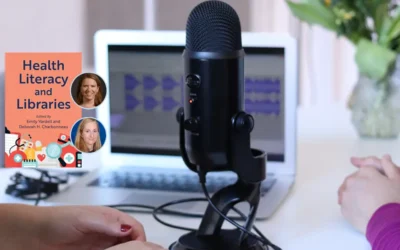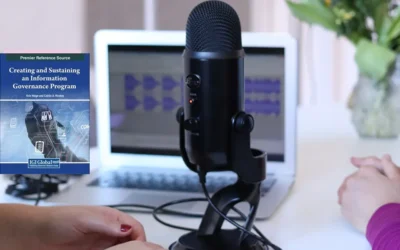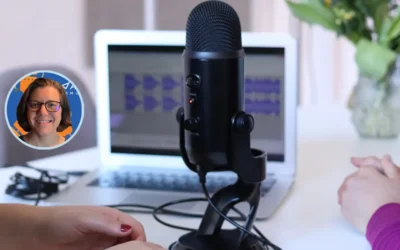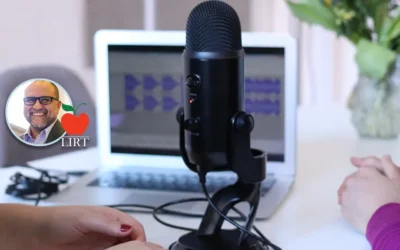Building Good Habits for Information Professionals
Miriam Kahn, MLS, PhD
Building and maintaining good professional habits is key for virtual librarians whether working exclusively for an organization or on an as-needed basis. These habits include current awareness of trends, new technologies and information resources, and delving into subject specialties.
One important skill for special librarians that fits within “good habits” is subject knowledge. Learning as much as possible about the subject areas critical to your information center and organization is key. Let’s look at building good habits to maintain and deepen knowledge and skills, and develop a sustainable routine throughout our careers.
Develop a routine; take five minutes a day
Studies show that developing good habits takes at least a month of effort until they become routine. As information professionals, we must develop and maintain habits that increase our knowledge and our desire to learn.
Building depth and breadth in a subject area takes work. Start small and build a solid base of knowledge from which to grow.
Start with reading the newspaper and newsfeeds—or even listening to a radio news program—daily for five to fifteen minutes every morning. Pick two or three that provide breadth and depth. Select one that includes general news.
Read professional news, skim professional journals and blogs weekly. Listen to a podcast on the way to work. Explore a new aspect of your organization or industry twice a month. Pick a few topics that focus on your industry or subject area. Spend between fifteen and thirty minutes at a time learning, thinking, and incorporating what you learn with what you already know.
In a nod to mindfulness and “digital minimalism,” practice learning in a distraction free environment.
Gaining new skills
Learning a new database or reference tool means gaining new skills. This is imperative if working in a virtual environment away from your colleagues. Curated information centers often acquire new research tools. Telecommuting professionals must emulate their institution-based colleagues by incorporating new tools and skills into their “knowledge base.” Take time to explore a new online database. Learn it “inside and out” by running practice searches, both basic and advanced. Analyze the results. Look for controlled vocabulary search terms to hone queries. Read the help screens. Determine how the keyword function actually works and what fields are really being searched.
Approach new reference tools the same way as online databases. Read the introduction, examine the structure and organization of the materials. Evaluate and test the access points, indices, appendices, and tables.
Gaining new skills enable teaching and demonstration. Teach new reference tools to colleagues and clients. Work through complex search strategies. Examine results for accuracy and efficacy of retrieved data.
Broadening your subject knowledge
As you solidify your yen for news in general and in your organization’s subject domain, begin to expand your knowledge. Read outside your subject specialty and explore tangential topics. If your subject domain is information science, explore computers, data, or information seeking behavior, communications, or even journalism.
Read outside your “comfort” zone. Deep dive into a complex subject. Focus on the gist of the article, look up topics and concepts until you know all the terminology. Write about the new topic to share what you learn with fellow information professionals. Writing is a form of learning.
Practice active reading. Not familiar with active reading? It’s simple. Pay careful attention to the abstract, introduction, and conclusion. Examine the references and bibliography. Using a 5×7 card, write down the focus of the study or article, major concepts, and conclusion. Note the names of theories and specialists, and related topics. On the back, jot down vocabulary and specialized terminology and concepts. (More on this topic in my next post.)
Hone your “Jack of All Trades” skills, every day with every encounter
Explore your collection and online resources. Identify subject areas you know the least about, and focus on deepening your knowledge on that topic. In this way, you’ll gain an understanding of “a little about everything” in a specialized aspect of the subject domain.
Identify, learn, and master resources tangential to your subject discipline. Using the same techniques described above, drill down to learn the ins and outs of that subtopic.
Slow down. Take time to absorb and integrate what you are learning into your own knowledge base.
Write about what you are learning. The best way to integrate new knowledge is to write about it, teach about it, and share it.
Learn for yourself, treat yourself to something new or ‘enticing’
There’s nothing like delving into a new topic painlessly. Try reading a novel or historical study related to your organization’s topic. Focus on the subject you want to learn while enjoying the fabricated situation or gleaning historical background.
Treat yourself by reading widely. Scan new columns within discipline-specific journals. Read current books on the subject. As you read actively, you’ll find references to practitioners who write informally in the subject domain. Read their blogs and musings. Consider how they learn and explore a topic, then emulate their approach.
Modify your learning style by reading outside your subject specialty. Expand your personal interests to encompass a subset of your institution’s subject domain. Try a new research or searching technique. Challenge yourself to learn something new, if not daily or weekly, then at least once a month. By the end of the year, you’ll have gained a firm grasp of a new area of a knowledge area.
Converse with experts, specialists, and hobbyists about your organization’s specialty or industry. Reach out to others with similar interests by writing, speaking, and sharing your own knowledge. You’ll be surprised at how much you learn through the exchange of interests and insights. As you converse with subject specialists, ask questions that narrow your focus or broaden your specific interests.
Summing it up
Gaining knowledge is at the heart of the information profession. Build sustainable learning routines by reading and skimming subject specific materials on a daily basis. Learn something new every day, strive to incorporate new skills every week. Slowly and consistently, structure your routine to incorporate learning and dissemination of information in your subject domain.
Using your ever-growing knowledge base, hone your information retrieval skills. Developing and nurturing the practice of learning something every day, encouraging and growing lifelong learning, is an essential good habit for all information professionals wherever they work.
Miriam Kahn, MLS, PhD
Miriam B. Kahn, MLS, PhD provides education and consulting for libraries, archives, corporations, and individuals. See Miriam’s pieces for Lucidea covering library technology and skills for special librarians. For more on how to succeed in a virtual library, please read this post on librarians and versatility in virtual library settings.
Similar Posts
Interview with Vardell and Charbonneau, editors of
Health Literacy and Libraries
Editors of Health Literacy and Libraries on evidence-based practices for health literacy work in libraries, including instruction and outreach.
Interview with Helge and Rookey on Information Governance Programs
Information governance is vital to organizations that want to secure and manage their data, use it to reduce risk, and view data as a protected asset.
Interview with Susannah Barnes about the SLA Data Community
Susannah Barnes is the Co-Lead of the Data Community for the Special Libraries Association. If you work with data in any capacity, this interview will be of interest to you.
Interview with Victor Baeza about ALA’s Library Instruction Round Table
Interview with Victor Baeza, President of LIRT, about how it benefits from and supports special librarians whose roles involve teaching or training.
Hosting service
Enjoy all of the benefits of your Lucidea solution with secure, reliable, stress free hosting
Programs & incentives
No matter your size or budget, we’ve got you covered, today and tomorrow




Leave a Comment
Comments are reviewed and must adhere to our comments policy.
0 Comments